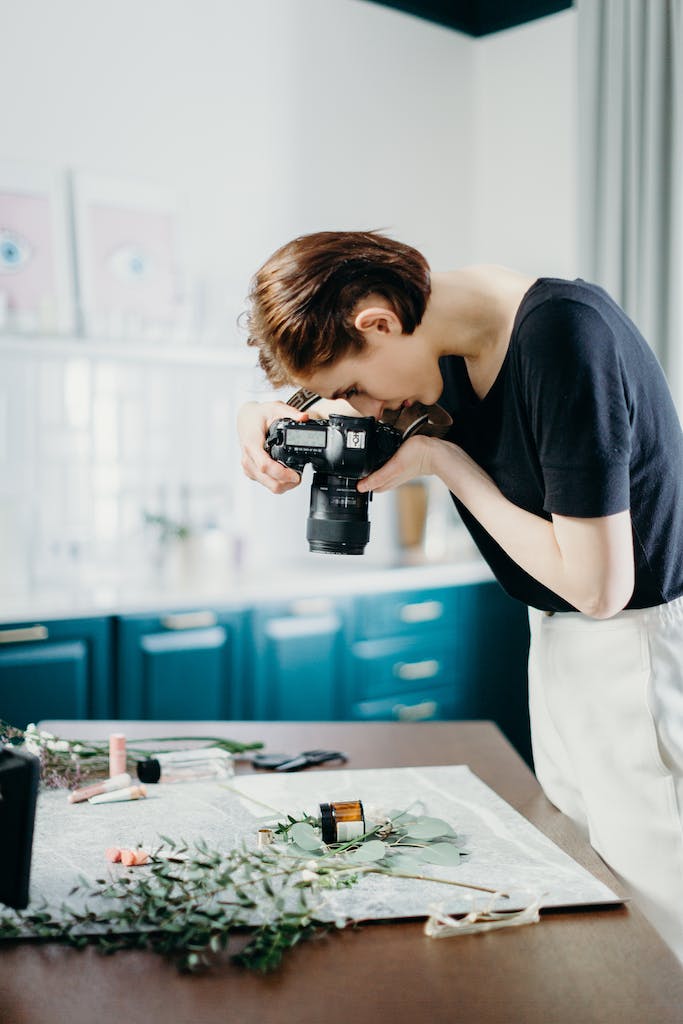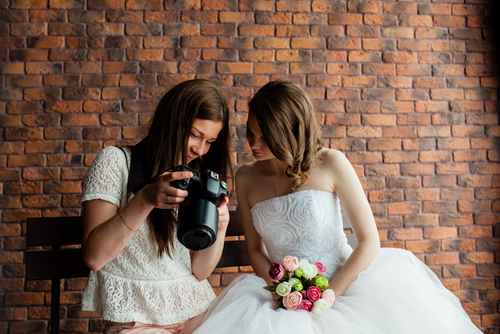Your Photography Portfolio: Why You Should Always Use Your Own Images
When clients land on your website or social media, the photographs in your portfolio and marketing materials are the first thing they see. They may be drawn to the genuinely happy faces your family photos show, the off-the-wall moments in your wedding photography portfolio, or the creative portraits you have displayed.

But, if you are starting out, likely, you don’t have a gallery of images to show just yet. And, you may be tempted to buy stock photos or download images from other photographers whose style you are inspired by.
So, what’s the harm in doing that? You will put not my images on there and will eventually replace them with your photos, right?
It is always a bad idea to use other people’s photos in your portfolio. Using stock photos to advertise your photography business or studio can be disingenuous. In addition, downloading other photographers’ images and using them for commercial gain is also illegal. Don’t let a mistake like this get your business and reputation off to a bad start.

Is It Legal to Use Other People’s Photos to Advertise My Photography Business?
When a photographer creates an image, they own the copyright of it. Some will put their pictures on stock websites where you can purchase a license to use them for editorial or commercial purposes. Any images that you find online belong to someone.
Other photographers will put images online and assign provisions that allow the public to download and use the photos, like those under the Creative Commons license. Although these images are copyrighted, the public can use them, so as long as the author is credited, the image is not modified, and any other rules are followed, that the photographer has put in place for the use of individual photos.
You will also find photographs that are in the public domain. In this case, the author has agreed to give up their copyright, or they have passed away, and nobody else continues to hold it.
You might find navigating the legalities of image use on the Internet is confusing. However, the main thing to note is that downloading and using other photographers’ photos to advertise your own business is illegal.
Some exceptions to the rule include having the author’s permission, having purchased the correct license if the Creative Commons or public domain photo allows commercial use, and others.
If you need a quick visual guide to see if you can use a photo you’ve found online, take a look at EyeEm’s “Can I Use That Picture?” chart. It’s a handy start to check if you have the correct rights to use the photo.

Even If it’s Legal*, Is It Ethical?
*Even if you have purchased a collection of images to use on your website, using other people’s images in your business will mislead your prospective clients. What they see on your site is not what you have created, even if you have obtained and paid to license the images.
Your photographs carry your branding, style, editing preferences, and personality. It is not fair to your clients to offer something you cannot promise to deliver or show images that don’t represent your photography at all. Using other people’s images in your work borders on false advertising.
What to Do While You Are Building Your Photography Portfolio
Even if you don’t feel you have enough photos to advertise your photography, it is better to populate your website with fewer images than use photos that others have created. You don’t need to rush the process. For example, if you don’t have any wedding photos yet, focus on assisting established photographers who allow you to use images taken as a second shooter. Sign up for Shootwith.me to assist or second shoot with photographers in your area! Meanwhile, you can create a website and its written content, but leave the image areas blank until you fill them with images from your photography portfolio.

Your photography portfolio represents you
Your images are an integral part of your business. Your clients deserve to know that your portfolio represents your work. Even if your past clients only include friends and family, being truthful goes a long way.
Don’t forget: your portfolio will change as your experience grows and as your taste changes. Even if you haven’t yet arrived at the stage you want to be, don’t be tempted to pass other photographers’ images off as your own. It’s not only illegal to even say ‘not my work’ in the post, but you might find yourself on Photo Stealers and your reputation tarnished in the industry.
Every photographer has gone through the initial stages of building their photography portfolio. It’s also likely that many did not have an extensive library of images when they first created a social media account.
However, you will not be at this stage forever. Step by step, you will build up a collection of images that you are proud to use on your website and social media to advertise your business. Remember if you need an example image to promote your session, plan in advance and get a model or a friend to be the subject!

If It Happens To You…
If you are a photographer who finds out someone else has used your image, try contacting them first to let them know that it is your image and ask them nicely to remove it.
Remember, it is likely they are new to the industry and truly don’t know that it is illegal. If that doesn’t work and they refuse to take it down, simply submit to stopstealingphotos.com or use a service like Pixsy.com that can take action on your behalf.
Lastly, If you want to truly protect your work, you can register your copyright with LegalZoom . They make it is very easy to do – it’s often completed in less than 15 mins!






